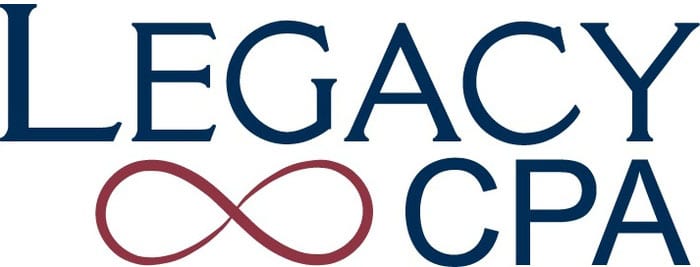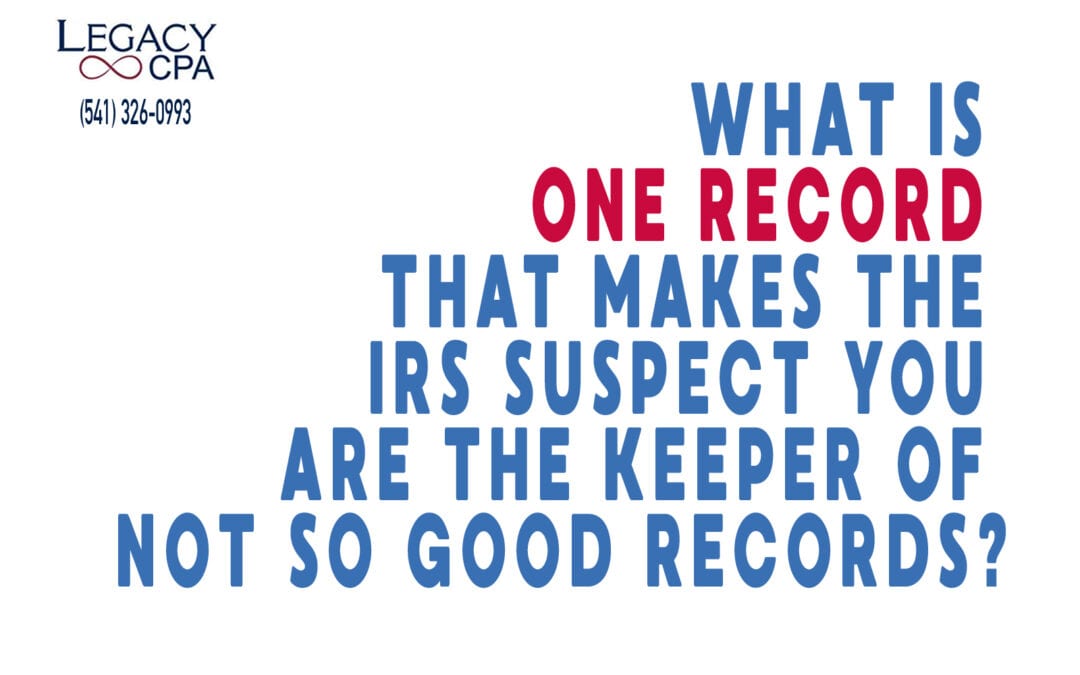September 30, 2020 …
What is the unpardonable sin in an IRS audit?
Suppose you just received that lovely letter from the IRS telling you that you are the subject of an IRS audit.
What one record receives special attention? What one record can create a nightmare for you? What one record makes the IRS suspect that you are the keeper of lousy records?
Think of the record people most hate keeping. That’s the one we are talking about.
Red-Flag Record for the IRS Examiner
Once your audit examination begins, the examiner likes to see this record. If the record is missing or lacking, the IRS examiner knows that your other records probably are lacking, too.
This record—the one you probably hate keeping—is the mileage log on your vehicle or vehicles.
The IRS notes that a taxpayer’s failure to keep a mileage log on vehicles indicates that the activity under examination is not being conducted in a businesslike manner.
The Case of the Martins: Bad Logs, No Deductions!
In Martin, the IRS disallowed Mr. and Mrs. Martin’s auto and travel expense deductions of $9,185; $30,807; and $41,627 (for 2012, 2013, and 2014 respectively). The IRS noted that the Martins failed the mileage log and travel substantiation requirements of tax code Section 274(d).
Under this tax code section, the IRS says in its regulations that substantiation of vehicle use and travel expenditures by adequate records requires the taxpayer to maintain an account book, a diary, a log, a statement of expense, trip sheets, or a similar record prepared contemporaneously with the use or expenditure and documentary evidence (e.g. receipts or bills).
The IRS considers a mileage log that is kept weekly as contemporaneous for this purpose.
To substantiate their auto expense, the Martins submitted mileage logs to the court that appeared to show how many miles they traveled each week but not the individual dates of travel or the places to which they traveled. Because of the failed mileage log and no proof of travel, the court agreed with the IRS and denied the Martins their $81,619 of claimed auto and travel expense deductions.
Bad mileage logs not only tell the IRS to dig deeper into your records (and pockets) but also cost you your vehicle deductions!
Do as the Tax Form Says
As a sole or husband-and-wife-owned business, regardless of whether it’s a corporation, a partnership, or a proprietorship, you file a tax form that asks you for the following information about your vehicles:
- Do you have evidence to support the business/investment use claimed? (If “yes,” is the evidence written?)
- List your total business/investment miles on each vehicle.
- List your total commuting miles on each vehicle.
- List your total personal miles on each vehicle.
IRS Form 4562 has columns for answers to the above questions for up to six vehicles used by either a sole proprietor or an owner of more than 5% of a corporation, a partnership, or another entity.
The mileage log is the record of proof that you need to use for your answers to the tax form questions.
Do What the Audit Would Require
Above, we said to do as the IRS form says. For additional clarification, it is good to know what information the IRS, in a correspondence audit, requires you to provide related to that tax form:
- Send copies of repair receipts, inspection slips, and other records showing total mileage for the year.
- Send copies of logbooks and other records to support the business mileage claimed.
- Provide a copy of your appointment book or calendar of business activities for the year.
- If you are claiming actual expenses, provide copies of paid bills, invoices, and canceled checks for automobile expenses. These would include gas, oil, tires, repairs, insurance, interest, tags, taxes, parking fees, and tolls.
- Send a copy of the bill of sale or other verification to establish your basis in the vehicle, including the trade-in of another vehicle.
Note that the IRS is looking for:
- a match of the repair bill odometer reading with the mileage in your logbook;
- a match of the inspection slip odometer reading with the mileage in your logbook;
- the mileage between repair stops, to see whether that ties in with your claimed mileage; and
- a business purpose that ties in with your appointment book or other calendar of business activities.
Elements of a Perfect Log
The perfect log accounts for the miles driven on a daily basis, broken down into the required components of investment, business, personal and commuting miles. We have provided you with a copy of a Mileage Log to help you audit proof your records. You can email us for a copy.
The perfect record identifies business and personal stops.
For some, grouping your stops makes sense. For example: a real estate agent who shows one prospect six properties during one trip might make a single entry such as “Showed Jane Smith seven prefabs in South Medford.”
You should enter stops where you shop for office equipment and supplies. If you buy an item, the receipt corroborates the stop.
In the Mileage Log we have provided, you will notice that there is an entry for beginning and ending odometer readings. Why? To ensure that your record is perfect. These readings tie to your repair bills, inspections, and oil change receipts.
In the Age of Apps and Software
There are a handful of mileage tracker apps out there, some are free and others charge a monthly fee. Most popular among our clients are MileIQ and TripLog. There are others: Everlance, Stride, Hurdlr …
Just make sure that you note your business reasons for the mileage and that your entries tie to your appointment book and other corroborative evidence, such as the date on the repair bill.
TAKEAWAYS …
If you want to avoid big trouble during an IRS audit, keep a good mileage log. This takes just minutes a day.
The mileage log is often one of the first records that an IRS examiner will look at. A good mileage log shows that you know the rules and you respect them. We have seen dozens and dozens of IRS audits end favorably and quickly upon presentation of a good mileage log.
On the other hand, a bad mileage log can turn your IRS examiner into an 800-pound gorilla.
If you have questions about keeping a mileage log or any other questions, give us a call. As always, we are on your side.
Team Legacy CPA
(541) 326-0993

